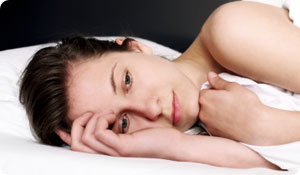
Chronic lack of sleep can do more than just leave you feeling drowsy the next day, it can lead to a constellation of serious health problems, including obesity, type 2 diabetes, mood disorders, cardiovascular disease and hypertension (high blood pressure). Several studies are now showing a link between long—term sleep deprivation—less than five or six hours of sleep a night-and high blood pressure.
A study published in Hypertension: Journal of the American Hearth Association in 2007, found that people between the ages of 32 and 59 who slept five hours or less a night were "over twice as likely to develop hypertension than subjects reporting getting seven to eight hours of sleep a night," according to James E. Gangwisch, Ph.D., assistant professor at Columbia University Medical Center, in New York City, and lead author of the study. A more recent study published in the Archives of Internal Medicine found that people who slept fewer hours a night were more likely to have higher systolic (top number) and diastolic (bottom number) blood pressure, the measurement used to determine hypertension. According to guidelines by the National Heart, Lung and Blood Institute of the National Institutes of Health, normal blood pressure is now defined as less than 120 mm Hg systolic pressure and less than 80 mm Hg diastolic pressure.
Uncontrolled high blood pressure, which affects nearly 74 million Americans, is often referred to as the "silent killer" because it's usually asymptomatic and can lead to such serious ailments as stroke, heart attack, heart failure or kidney failure. According to some researchers, the causal link between lack of sleep and hypertension may be that short periods of sleep (less than six hours a night) increase an individual's average 24-hour blood pressure and heart rate, which, over time, may lead to persistent high blood pressure.
If you're having chronic difficulty getting to sleep and staying asleep, experts suggest being evaluated by a sleep specialist to find the right treatment. Making some lifestyle changes like maintaining a strict rising time each morning and removing activities such as snacking, reading and watching TV in bed can also promote good sleep habits.
Here are few more tips that help you get more Zs:
- Avoid daytime naps
- Don't have caffeine after lunch
- Avoid exercising within six hours of bedtime
- Go to bed when you're tired and turn off the lights. If you don't fall asleep within 15 to 20 minutes, get up and do something else





